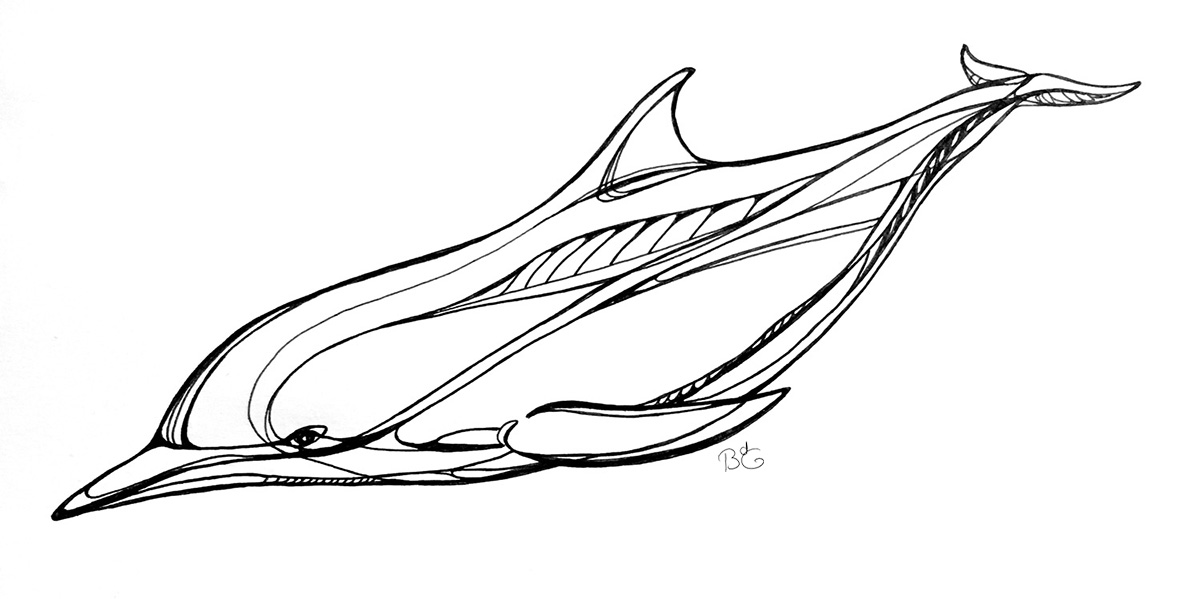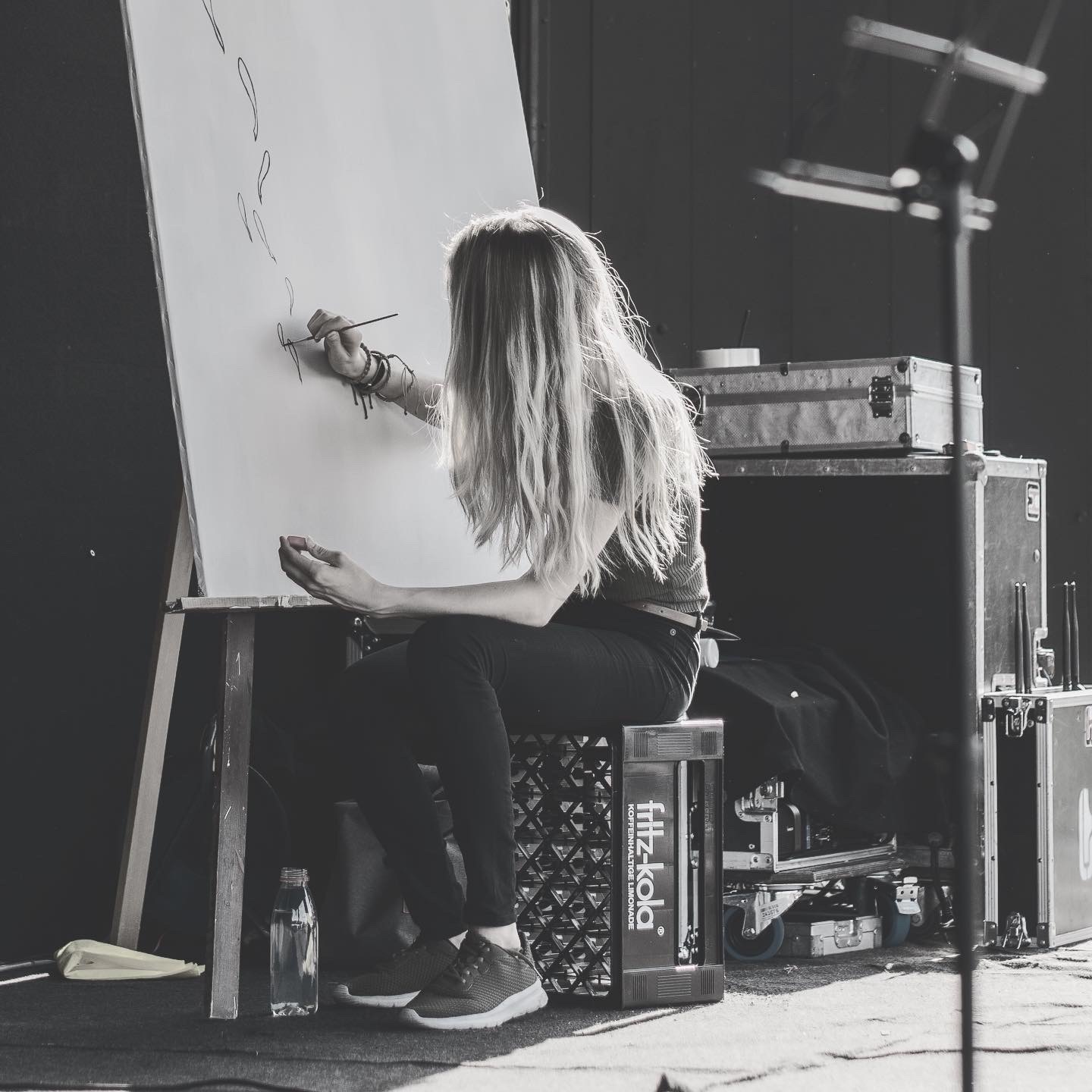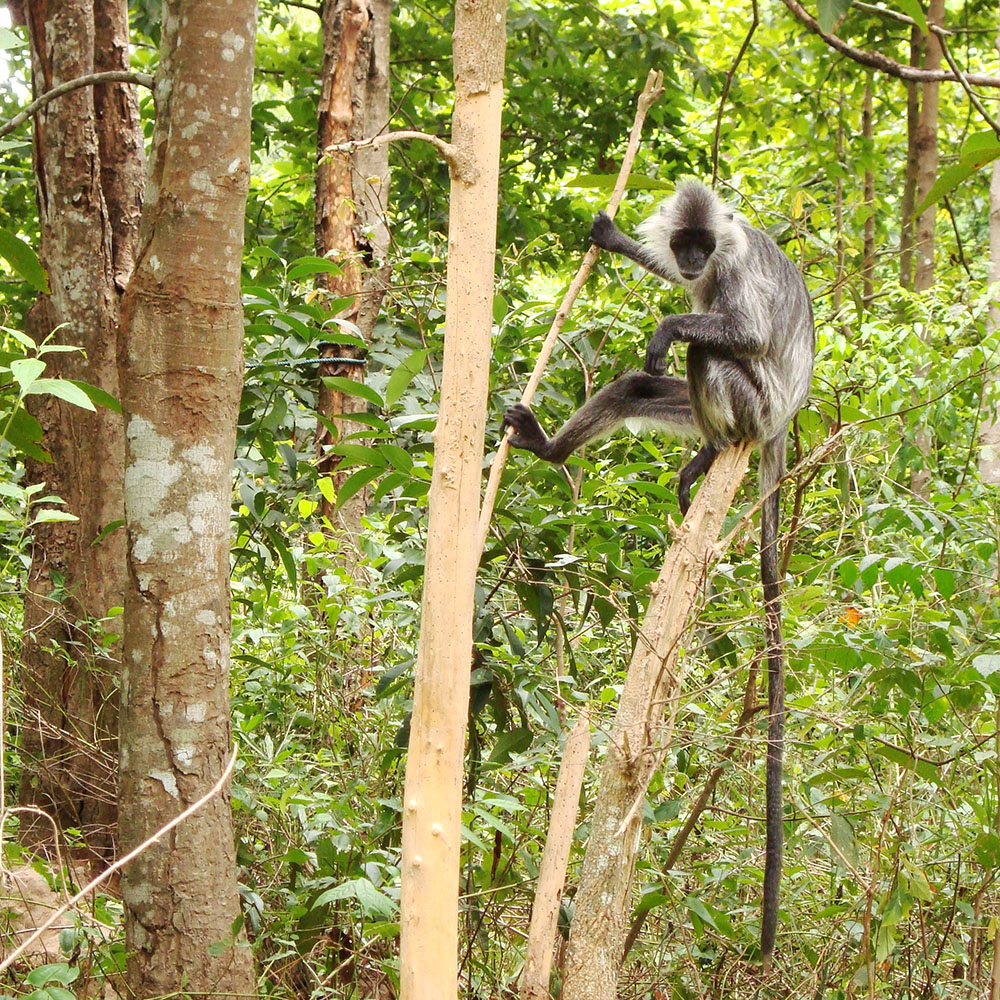
About me
Hi there! I am Brenda, and I’m a first years PhD student at the Department of Anthropology at UCLA. I hold a MSc in Primate Conservation from Oxford Brookes University and a BSc in Psychology from the University of Amsterdam.
My work lies at intersections. As a primatologists, I am passionate about lutungs (Trachypithecus spp.) – leaf-eating monkeys living in Southeast Asia, whose minds are still relatively understudied compared to other primate taxa. I am particularly interested in (1) how lutungs interact with and think about each other and other species, including humans, and (2) how they navigate their lives in human-altered habitats.
Through studying primates, I aim to connect the science of animal behavior and minds with the “animal turn” in the Humanities and Social Sciences. In my theoretical work, I integrate philosophy, ethology, and conservation to advance an ethology that is motivated by multispecies justice and flourishing. One that takes animals seriously as agents and subjects-of-complex-lives, studies them as such, and radically acknowledges their interests and well-being in conservation ethics and management.
Other activities
I am co-chair of the Dutch Animal Philosophy Study Group (werkgroep dierfilosofie) and part of the UC Animal Studies Initiative to create an Animal Studies minor at UCLA. Before my PhD, I was a Fellow (2021), Storyteller (2022) and Project Coordinator (2023) at the Diverse Intelligences Summer Institute, worked as a workgroup teacher at Leiden University (The Netherlands), and conducted research there too, among others on how humans evaluate the moral standing of animals.
If I have spare time (haha), I love to work on my art practice. Fun fact: before my return to academia, I was a ghostwriter, illustrator, and animal activist blogger.
I am affiliated with the LINGlab, AASA, CoPAN, GTA Animal Cognition group, and A.P.P.L.E and a member of the American Society of Primatologists (ASP).
You can reach me at: brendadegroot [at] ucla [dot] com


The (st)art
I’ve always been fascinated by (read: obsessed about) animals. As a child, I spent my free time either drawing animals, reading about animals, or watching them in the garden or on TV. I wanted to know what it is like to be a bird, to be able to flying over the tree tops and though mountain ranges; or a dolphin, communicating with others through echolocation (did you know dolphins can project images in each other’s minds? It’s wild!).
Unfortunately, shifting consciousness was – and still is – beyond our human capacities, so I resorted to drawing as a way of exploring other minds.
I can hear you think: “Wait – how does drawing make you explore other animals’ minds?”. I’ll try to explain by posing a question: Have you ever attempted to draw a portrait of someone? If so, you may have experienced how intimate it is to go over every detail in their face. I don’t know if it’s just me, but when drawing someone’s cheek, I cannot but “feel” a little tingle on my own cheek. This feeling-into the subject is strongest when drawing expressions. You need to feel at least slightly what your subject is feeling to be able to get the expression right on the paper.
The same goes for drawing animals, whether it be live or from imagination. You have to empathize with your subject if you want to accurately depict them. Through drawing animal bodies, I got to know these bodies better. And by imagining their perspective of the world, I felt I could come a bit closer to knowing what it is like to be them.

Painting at the Animal Rights March 2019

Now, imagination is not a valid instrument for gaining knowledge. We have waved goodbye to arm-chair philosophy (with or without a pencil in hand) as an epistemic method a long time ago. To attain knowledge of the world, we have to go out there and see and experience ourselves, and learn from those who did before us. That is how I ended up in university, to study animals’ minds and lives.
Chasing monkeys
I did my undergraduate at the University of Amsterdam, where I studied Psychology, with a major in Social Psychology. It was fascinating to learn what drives humans in how they behave, think and feel, and I loved every bit of my study. Yet the absence of other animals in psychological theory and practice struck me. Other animals also had experiences, brains and behaviour – why were they left out of the equation? I devoted as much coursework as I could on nonhuman animal minds and behaviour, and wrote my bachelor thesis on empathy in different primate taxa. The Honours program made me fall in love with philosophy of mind, and for a good while I was obsessed with finding a solution to the Hard Problem of consciousness. I didn’t find it, and my current thoughts on the matter (pun intended) is that we humans lack the cognitive capacity to understand how neural processes create a consciousness experience, like a cat lacks the cognitive capacity to understand algebra. But please do falsify this idea.

After obtaining my BSc, I volunteered at Stichting AAP for a year as an animal caretaker (Spain) and observation assistant (The Netherlands). Here is where I developed a love for baboons. They got ‘swag’! I then got accepted into the MSc Primate Conservation at Oxford Brookes University, which turned out to be the best time of my life. I read about primates, wrote about primates, dreamed about primates – I breathed primates.
I specialised in Asian colobines, whose gentle nature is so strikingly different from the strict hierarchical societies of the pig-tailed and long-tailed macaques, Hamadryas baboons and chimpanzees I knew from AAP. Still very little is known about the behaviour and minds of colobines. As folivorous (leaf-eating) monkeys, colobines spend most of their days foraging and digesting. Compared to frugivorous primates, there is not much drama going on, which causes them to be a bit of a forgotten primate group in behavioural research. So for my final project, I decided to study the behaviour repertoire of the Germain’s Langur (Trachypithecus germaini), carried out a conservation education program with a complimentary children’s book to help protect Cambodia’s primates.
After I graduated I wanted to put my knowledge to practice. I worked a short time for World Animal Protection and was very fortunate to receive a grant to work with the Himalayan Langur Project, to create an educational magazine and assist in research on the Himalayan gray langur (Semnopithecus ajax) in the Indian highlands. In the years that followed, I became a freelance writer and illustrator, and worked with various animal welfare and nature conservation NGO’s around the globe. In my spare time I launched Vegan Monkey, a blog to inspire people to go vegan, and founded a little vegan clothing company to help vegans inspire others to go vegan. The articles and recipes still exist on my website today – do try out the avotella.

Animal ethics and the Anthropocene
Besides my passion for knowing animals, I also feel it is my duty to help protect their rights, lives and habitats. Animals are conscious, sentient beings, with lives and minds of their own. They have interests, agency and intrinsic value, and therefore moral standing and rights. Sadly, humanity at large doesn’t recognise or acknowledge these givens. We use, abuse and kill animals, often for nothing more than our own petty pleasures and conveniences. Anthropocentrism, speciesism and human privilege are the root cause of the suffering of millions of animals each day. To me, it’s not more than logical and compassionate to help change this.

Get in touch
You can reach me by email me at brendadegroot [at] ucla [dot] edu.
This site is protected by reCAPTCHA and the Google Privacy Policy and Terms of Service apply.

